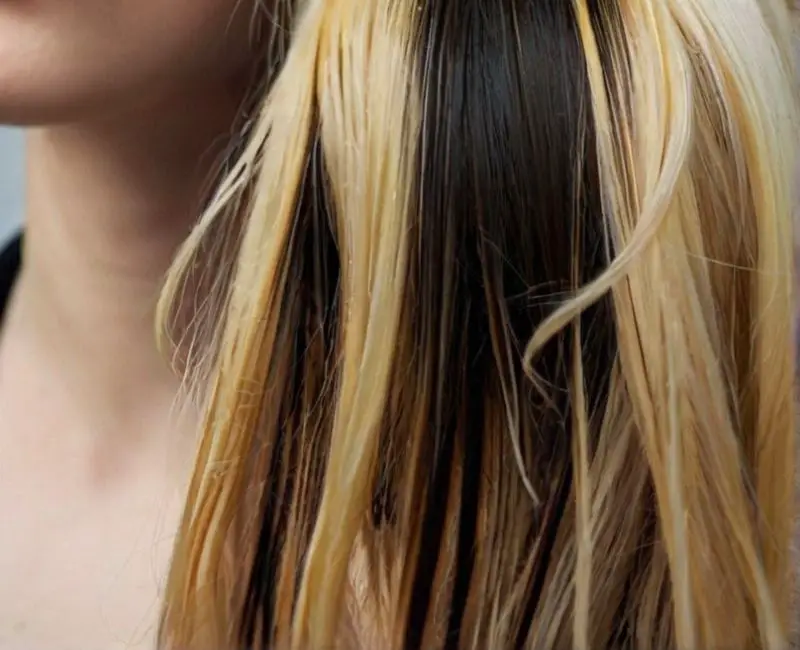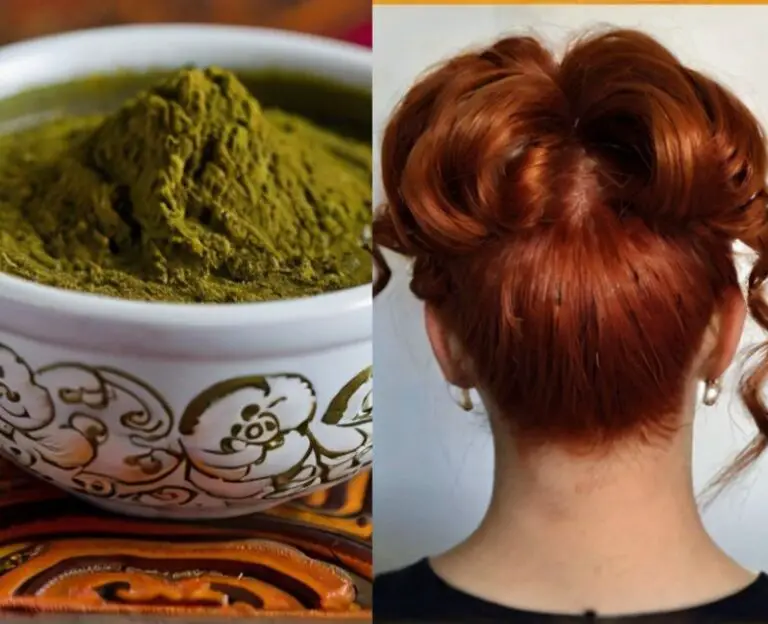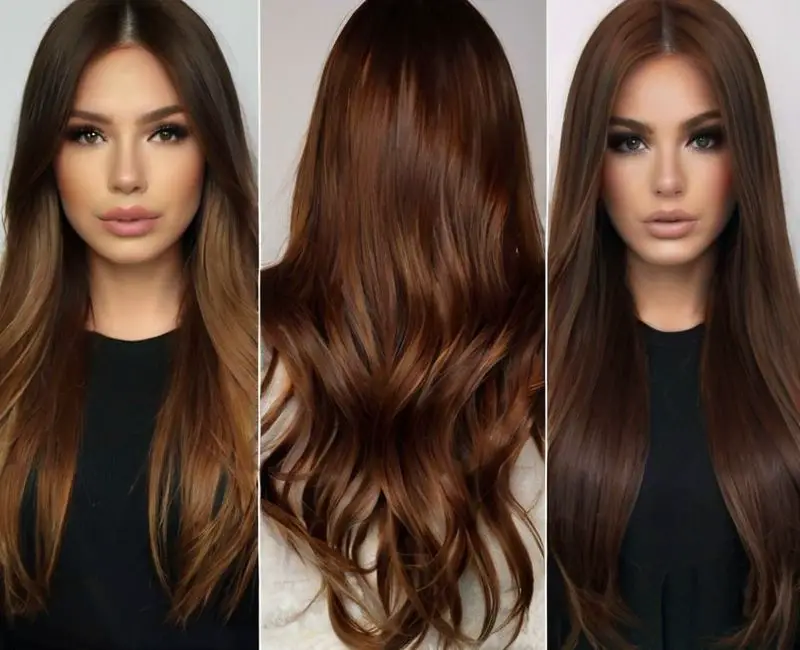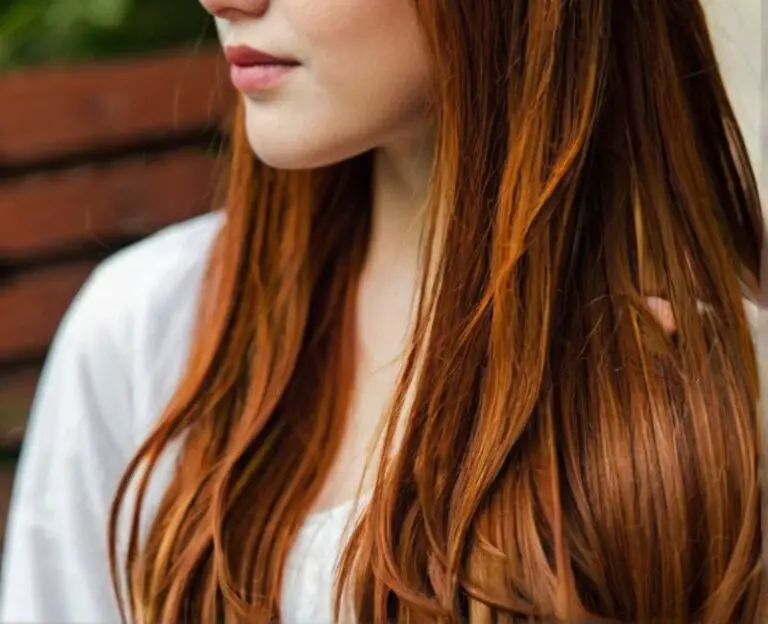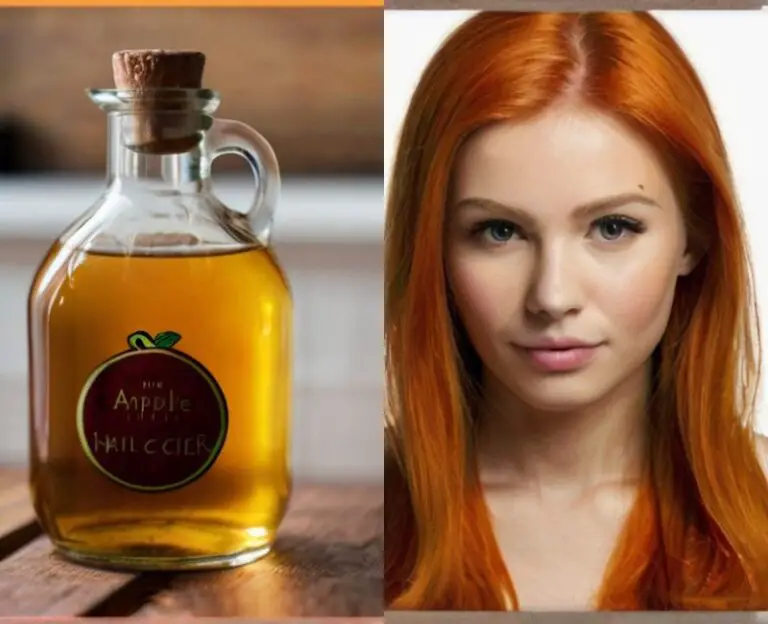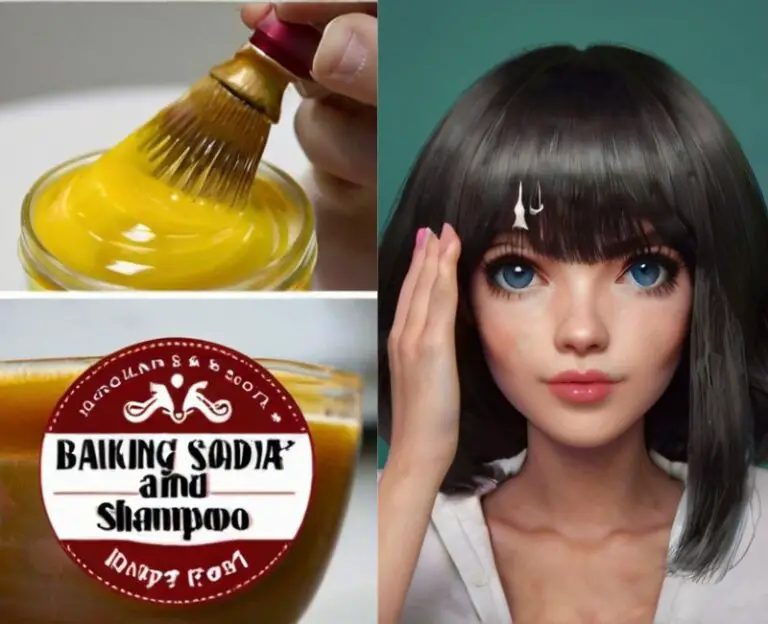Will Vitamin C Remove Permanent Hair Dye
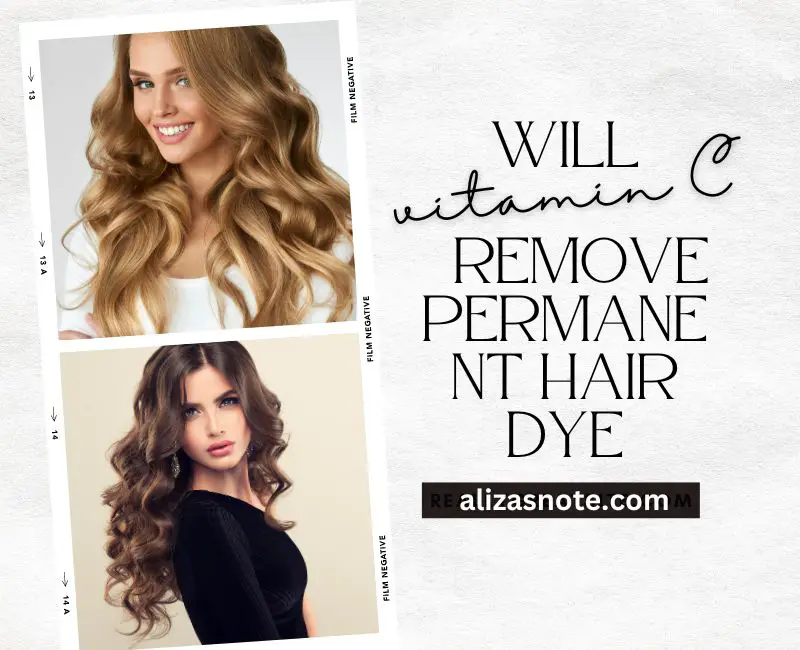
Are you intrigued by the questions of will vitamin c remove permanent hair dye? In this blog, get the effectiveness of vitamin C in tackling stubborn hair color.
Permanent hair dye can be challenging to remove once it’s set in the hair shaft. However, there’s been buzz about vitamin C as a potential DIY solution. Vitamin C is believed to offer a natural and gentle method for fading hair color without causing significant damage.
But how does it actually work? Science behind vitamin C’s ability to break down hair dye molecules and lift them from the hair shaft. By doing so, it may reveal a lighter or more faded hair color underneath.
Explore some potential advantages and drawbacks, and share firsthand accounts from those who’ve tried it.
AlizasNote promises valuable insights into using vitamin C to remove permanent hair dye. Let’s enjoy it!
Science Behind Vitamin C to remove hair dye:
Using vitamin C to remove hair dye lies in its ability to disrupt the bonds formed between dye molecules and the hair shaft. Vitamin C, or ascorbic acid, possesses antioxidant properties crucial for this process, particularly effective against permanent or oxidative hair dyes.
Permanent hair dyes penetrate the hair shaft, where their color molecules undergo a chemical reaction, forming larger pigments that become embedded within the hair’s structure. However, when applied in concentrated form, vitamin C acts as a reducing agent, breaking down these larger pigment molecules into smaller, water-soluble components.
Upon contact with hair dye, vitamin C initiates oxidation, causing the dye molecules to lose their ability to adhere to the hair shaft. Consequently, the dye becomes more susceptible to removal through washing. Furthermore, vitamin C aids in lightening the hair color by extracting pigment from within the hair shaft.
It’s important to consider various factors influencing the effectiveness of vitamin C, such as the type and brand of hair dye, duration of dye exposure, and hair’s inherent characteristics like porosity and texture. Moreover, the concentration and application method of vitamin C can significantly impact outcomes.
While vitamin C offers a natural and gentle alternative to harsh chemical treatments for fading hair dye, caution is warranted. Multiple treatments may be necessary for desired results, and the process could potentially dehydrate the hair.
As with any hair treatment, conducting a patch test and seeking guidance from a professional stylist are advisable.
Will vitamin c remove permanent hair dye:
The potential of vitamin C to remove permanent hair dye has intrigued many individuals seeking natural alternatives to conventional color removal methods. While vitamin C’s antioxidant properties hold promise for fading hair dye, its efficacy in completely eradicating permanent hair color remains uncertain.
Permanent hair dye bonds with the hair’s proteins, making it deeply entrenched within the hair shaft and resistant to removal. However, vitamin C, when applied in concentrated forms, has been proposed to disrupt these bonds by oxidizing the dye molecules. This process weakens the dye’s grip on the hair shaft, facilitating its removal through washing.
Various DIY methods involve concocting a mixture using crushed vitamin C tablets combined with shampoo, anti-dandruff shampoo, or clarifying shampoo. This mixture is typically applied to damp hair, left on for a specified period, and then rinsed out thoroughly.
Although some individuals have reported success with this approach, outcomes can vary depending on factors like the type and brand of hair dye used, the duration of dye exposure, and the hair’s porosity. Additionally, vitamin C may not completely eliminate all traces of dye, particularly if the dye has deeply penetrated the hair shaft.
It’s crucial to approach vitamin C hair dye removal with caution as it can potentially dry out the hair and may necessitate multiple treatments for optimal results. Furthermore, vitamin C treatments may lighten the hair color rather than entirely removing it.
Vitamin C may aid in fading permanent hair dye to some extent, it may not offer a definitive solution for complete color removal. Considering this method should manage their expectations and be aware of potential limitations and variations in outcomes. Seeking advice from a professional hairstylist, especially for those with specific color
DIY Methods Using Vitamin C:
DIY methods incorporating vitamin C for hair dye removal have gained traction among individuals seeking natural alternatives:
1. Vitamin C and Shampoo Paste
Crushed vitamin C tablets are mixed with clarifying shampoo to form a paste. This paste is applied to damp hair, focusing on areas with stubborn dye buildup. After allowing it to sit for about 30-60 minutes, the hair is thoroughly rinsed.
2. Vitamin C and Anti-Dandruff Shampoo
Crushed vitamin C tablets are dissolved in anti-dandruff shampoo to create a solution. This solution is applied to the hair and covered with a shower cap to prevent drying. After leaving it on for an extended period, typically overnight, the hair is rinsed thoroughly.
3. Vitamin C and Conditioner
Crushed vitamin C tablets are mixed with regular conditioner. This mixture is applied to damp hair, targeting areas with resistant dye residue. After letting it sit for around 30 minutes to an hour, the hair is rinsed thoroughly.
4. Vitamin C and Baking Soda Scrub
Crushed vitamin C tablets are combined with baking soda to create a scrub. This scrub is gently massaged into damp hair, focusing on areas with heavy dye buildup. After a few minutes, the hair is rinsed thoroughly.
While these DIY methods may offer varying degrees of success in fading hair dye, caution is advised. Vitamin C treatments can potentially dry out the hair, and results may vary based on factors like the type of hair dye used and the hair’s condition.
Real-Life Experiences:
Selena Says, Opting for a natural solution, I experimented with vitamin C to lighten my permanent hair dye. By blending crushed tablets with shampoo and applying the paste for an hour, my hair gradually lightened with each treatment. Though it didn’t fully remove the dye, the process offered a gentle approach to color correction.
Potential Risks and Precautions:
While these approaches can yield positive results for some, it’s crucial to remain mindful of the following considerations:
A) considerations
- Hair Dryness
Vitamin C treatments have a tendency to dry out the hair, particularly if applied excessively or left on for prolonged periods. This may lead to increased fragility and breakage, especially in hair that is already compromised or has undergone extensive processing.
- Scalp Sensitivity
Individuals with sensitive scalps or existing scalp conditions, such as dermatitis or psoriasis, may experience irritation or discomfort when using vitamin C treatments. It’s important to monitor the scalp closely for any signs of adverse reactions and discontinue use if discomfort arises.
- Color Variation
While vitamin C can aid in fading hair dye, it may not completely eliminate all traces of color. Results can vary based on factors like the type of dye used and the hair’s natural characteristics. Additionally, vitamin C treatments may result in uneven lightening or color variation, which may not align with desired outcomes.
- Impact on Natural Hair Color
There’s a possibility that vitamin C treatments may affect the hair’s natural color, particularly with prolonged or repeated use. This could lead to unintended lightening or alterations in hue, which may not be desirable for everyone.
B) Precautions:
- Before applying vitamin C treatments extensively, perform a patch test on a small, inconspicuous area of skin to assess for any adverse reactions.
- Avoid leaving vitamin C treatments on the hair for longer durations than recommended to minimize the risk of dryness or scalp irritation.
- Follow up vitamin C treatments with deep conditioning or moisturizing treatments to replenish lost moisture and minimize damage to the hair.
- If uncertain about the use of vitamin C treatments or experiencing adverse reactions, consult with a professional hairstylist or dermatologist for personalized guidance and recommendations.
FAQ
Q. Does vitamin c remove permanent hair dye?
Vitamin C has shown potential to fade permanent hair dye, albeit to varying degrees. Its antioxidant properties can break down dye molecules, making them easier to remove.
Q. Does vitamin c shampoo remove permanent hair colour?
Vitamin C shampoo may lighten permanent hair color gradually, but it might not completely erase it. The shampoo’s mild acidic properties can slowly break down dye molecules, resulting in a faded appearance.
Q. Does vitamin C treatment lighten natural hair color?
Yes, vitamin C treatment can potentially lighten natural hair color. The acidic nature of vitamin C can lift pigment from the hair shaft, resulting in a lighter shade.
Q. Is it safe to apply vitamin C treatments on chemically treated hair?
Generally, vitamin C treatments are safe for chemically treated hair. However, caution is advised, especially for damaged or heavily processed hair. Prior to widespread application, it’s recommended to perform a patch test and observe hair’s reaction to ensure compatibility with existing treatments.
Q. How frequently can vitamin C treatments be used for hair dye removal?
The frequency of vitamin C treatments depends on individual hair characteristics and desired results. While some may see progress with weekly applications, others may require more or less frequent treatments. It’s important to assess hair’s condition and adjust treatment frequency accordingly for optimal outcomes.
Read More Hair Color Post: How To Remove Hair Color
Last Call:
- DIY methods incorporating vitamin C provide a gentler approach compared to harsh chemical treatments, yet it’s crucial to approach them with realistic expectations. Factors like the type of hair dye, hair porosity, and duration of dye exposure significantly influence outcomes.
- Integrating vitamin C treatments into your hair care regimen presents an accessible and natural option for those seeking to fade permanent dye. Adhering to precautions such as patch testing and post-treatment moisturizing helps mitigate potential risks and enhances results.
- Always seeking professional advice when necessary ensure a well-informed and positive approach to achieving desired hair color outcomes.
Call to Action:
- Have you experimented with using vitamin C to lighten your hair color? Share your triumphs, hurdles, or inquiries in the comments section below. Your contributions can offer valuable guidance to others embarking on their own hair dye removal journey.
- If you’re on the lookout for additional hair care insights, DIY solutions, and creative inspiration, join us on Pinterest.
- Whether you’re seeking to address a hair dye mishap or simply exploring natural approaches to hair care, your involvement enriches our community.
